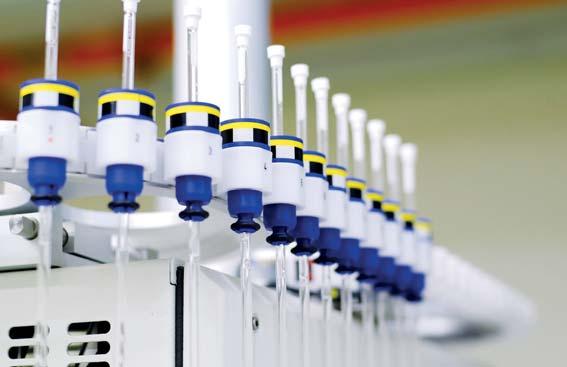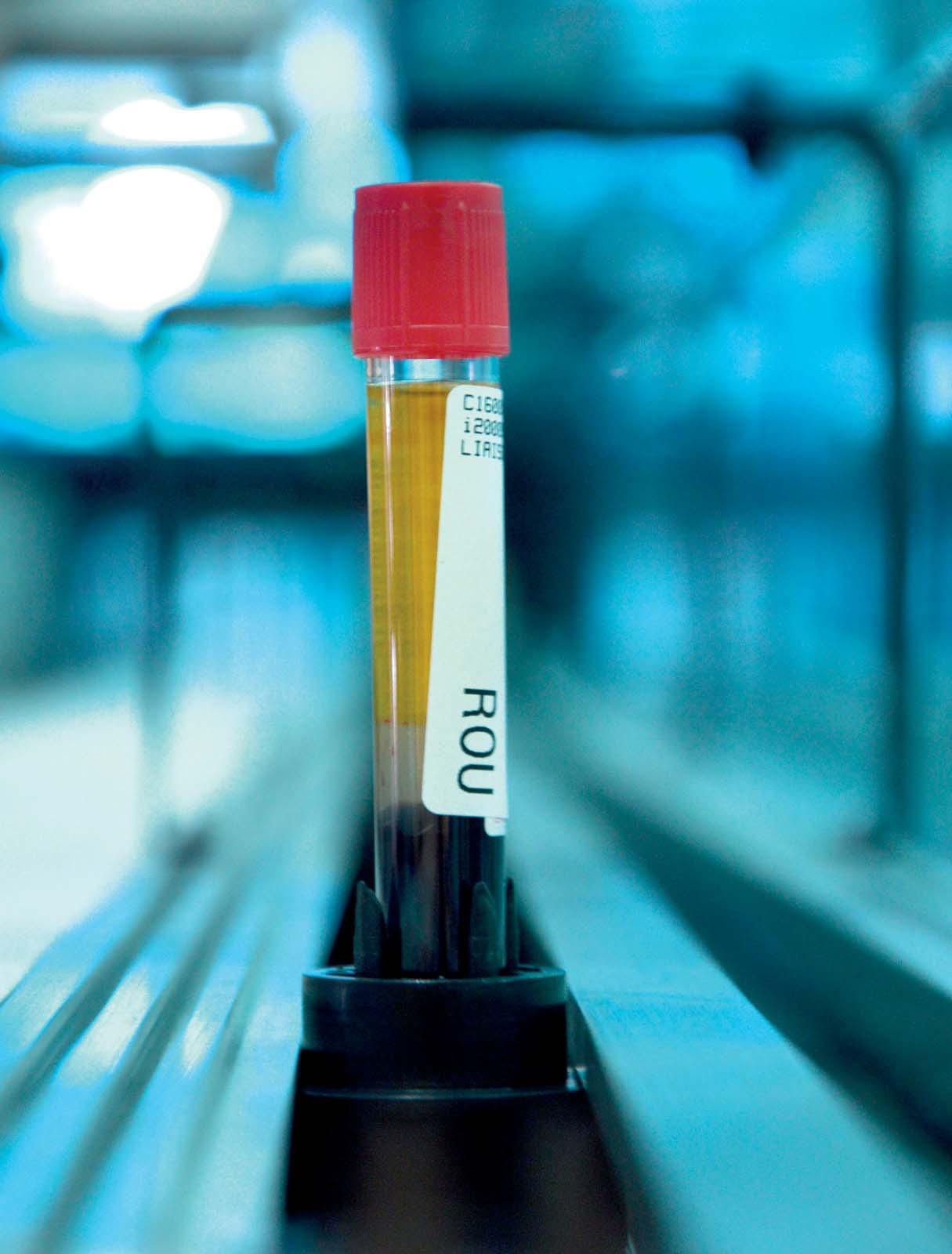
3 minute read
CREMAN - Nuclear Magnetic Resonance Centre A well-informed partner of the industrial innovations of tomorrow
by 5rXobdlLrFp
Created in 2001 as a research and teaching support unit, CREMAN provides a nuclear magnetic resonance (NMR) service to users mainly in universities but also in industry.
Every year, CREMAN welcomes around a hundred users (mainly students and academics but also industrials representing 20% of machine time used). CREMAN trains students and academics before allowing them to use the instruments freely. Prof. Christian Damblon and his colleague André Joassin ensure that the equipment is working properly, attempt to resolve any challenges that are presented to them, and develop, on request, new experiments and working partnerships.
Advertisement
CREMAN has 4 spectrometers of 250, 400, 500 and 700 MHz: characterised by their proton frequency, the higher the frequency the more the spectrometer is sensitive and the higher the resolution. The 250 MHz spectrometer - highly robust - is used in open access by students in 15-minute sessions. The 400 MHz spectrometer presents a large number of possibilities for analysis and runs almost 24 hours a day with a pool of preprogrammed experiments. Reserved for a more limited number of users, the 500 and 700 MHz spectrometers are both fitted with a helium-cooled probe and an automated sample-changer of up to 500 sample allocations. In addition to this cutting-edge equipment, the CREMAN has a laboratory for the preparation of samples, which allows CREMAN to be independent and is an added value for those active in industry.
The analysis possibilities offered by the CREMAN spectrometers are many. In organic chemistry, the NMR allows for high-performance follow-up of reactions. It is also used to study natural plant- or animal-based compounds (pharmacognosy), the characterisation of new polymer-based materials and also biochemistry (determination of the three-dimensional structure of proteins in solution, to study the interactions with ligands or potential pharmaceutical targets and to study protein folding, which is increasingly used in the agrifood and pharmaceutical sectors). The 500 MHz system managed by Dr Pascal de Tullio is installed in the Interdisciplinary Medication Research Centre and is more specifically dedicated to metabolomics and pharmaceutical applications. It forms
an integral part of the pharmacy department quality system and makes it possible to carry out analyses under GMP requirements.
Moreover, the CREMAN enables work to take place on solid samples for the study of materials: determination of polymorphs that give a range of properties to new molecules and pharmaceutical prepara tions, determination of the crystallinity of some solids associated with solubility issues involved in the bioavailability of medications. It is also committed, within the field of education, to the development of an IT programme entitled “ULg Spectra” dedicated to the learning of the structural analysis of unknown organic molecules by spectroscopy, and this based on real-life examples.
Thanks to its knowledge and very attractive equipment, CREMAN has developed a large number of partnerships with local industries such as Kiomed: analysis protocols in liquid and solid forms have been jointly formulated to allow this company to better characterize chitosan modifications conferring specific properties. In the same way, the company 3B has asked CREMAN to develop and draw up a robust analysis method to allow for the characterisation of feedstock products and their development throughout the industrial production process. CREMAN also works with Biorem Engineering, the company that has invented revolutionary technology in the phytosanitary sector in partnership with Vranken Pommery and the Changins Agroscope (Switzerland): structural characterisation of the new bio-based molecule is in progress. In this way, CREMAN positions itself as a well-informed partner of the industrial innovations of tomorrow.


CREMAN Institute of Chemistry (B6c) - University of Liege Sart Tilman - B-4000 Liège Tel.: +32 43 66 37 88 E-mail : c.damblon@uliege.be http://www.creman.ulg.ac.be/creman/index.html











